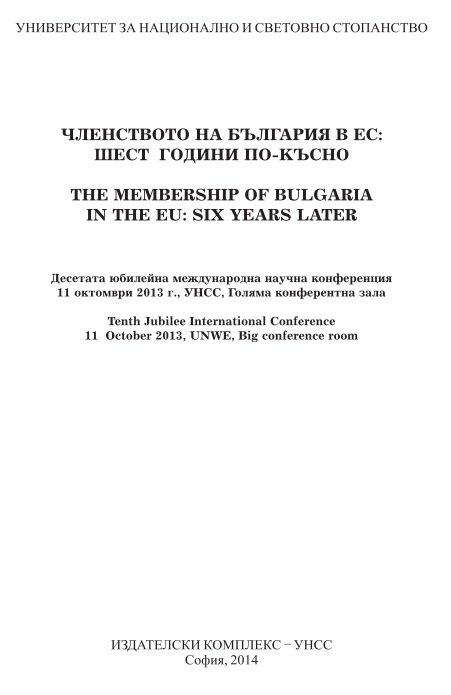Конкурентоспособността на Европейските страни в световната икономика
Competitiveness of the European Countries in the World Economy
Author(s): Silvana Jovcheska, Natka Jankova
Subject(s): Economy, Supranational / Global Economy
Published by: Университет за национално и световно стопанство (УНСС)
Keywords: Cross-Cultural Differences; Training; Contemporary Management Practices; Human Recourses Management; Intercultural Communication
Summary/Abstract: The Balkan countries entrance in the family called European Union meant and still means a challenge for the managers who worked only locally up to that moment to focus their work and the effective entrance on the European land, taking the risk which daily involves the permanently changing global surrounding. But, the same challenge raises the question whether those domestic managers are competitive on European ground i.e. to what extend their: knowledge, interests and skills can be competitive out of their mother country. This implies a situation in which the manager, who had a home career and is interested in career in the European Union, is competitive in terms of: the extend to which he/she is professionally aware of management, which are his/her managing inclinations and strains, how big are his/her computer skills, the knowledge of foreign languages including the host country language, the extend of adjustment and awareness of a new surrounding etc. The adjustment is connected with the willingness of the candidate and the member of "his family" to adjust to different culture and a new surrounding. There are different ways and trainings which are used around the world for overcoming cross-cultural differences aimed at adjustment of the selected candidates in the new surrounding. Since all international business corporations are connected with communication, a knowledge of intercultural communication and international business communication are of a huge significance in order to prepare business people to compete successfully in international environments, in this case the European environment. This paper is inspired by the positive dynamics of applying the contemporary practices in the management of domestic and International Corporation in the Balkan countries in order to accomplish competitive qualities for the European market. The paper strives to note the main benefits from accepting the contemporary management practices underlining the cross-cultural training of the contemporary management and the importance of studying intercultural communication.
Book: Членството на България в Европейския съюз: шест години по-късно
- Page Range: 22-26
- Page Count: 5
- Publication Year: 2014
- Language: English
- Content File-PDF

